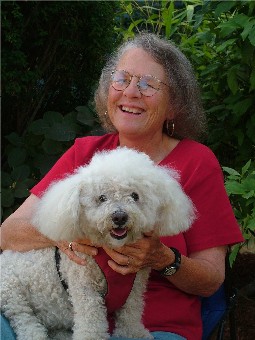with the rest of life.
The Simplicity movement is a response to this dilemma. It is about living consciously in order to live more fully, thinking through the effects of our behaviors in terms of the consequences for the well-being of people and the planet. It's about asking what's important, what matters. Its about redefining the good life.
Voluntary Simplicity, an age-old philosophy explored throughout human history, has once again captured people's imagination as we struggle to build lives of high fulfillment and low environmental impact.
The concept of Simplicity is not, as some might think, a life of self-deprivation. It is a turningaway from activities that have failed to deliver satisfaction — activities such as shopping and scrambling up the career ladder; in order to embrace activities that bring true joy and meaning; creativity, community, and the celebration of daily life.
Simplicity is the examined life in which we explore not only what creates fulfillment in our personal lives, but we ask which public policies create societies of justice and environmental well-being. Simplicity touches all aspects of our lives, including the issues of time, work, vocation, community, spending, consuming, health, social justice, and spirituality.
Across the country, people are joining simplicity study circles. The study circle is a small group, peer-led egalitarian form of self-education and social change. It's a form of social innovation used extensively in Sweden where study circles are referred to as "education by the people, for the people, and of the people." Sweden has been called a study circle democracy, and indeed research has found that people who participate in a study circle are apt to be more involved in the common good, regardless of the topic of the study circle.
Simplicity study circles are designed to help people discuss the idea of Simplicity and to make concrete changes in their lives. Simplicity study circles are at once a support group, a discussion group, and a method of behavioral change. They focus on building community, creating support for personal change, and engaging in critical thinking for societal change. Topics addressed include Finding More Time, Creating Community, Finding Your Passion, Transforming the Workplace, Reducing Your Consumerism, Creating Healthier Life Styles, Linking Simplicity to Social Justice, Exploring and Defining One's Spirituality.
Simplicity study circles are designed for maximum participation and a minimum of competitiveness within an ethos of acceptance and caring.
"Never doubt that a small group of thoughtful, committed citizens can change the world. Indeed, it's the only thing that ever has." — Margaret Mead
Finding and Living Your Passion
People today often experience their lives as lacking vitality or purpose and are looking for the experience of aliveness and depth. Too often people's spirit has been broken; their uniqueness suppressed. By reflecting on their own lives, people can discover their own particular passion; something they love to do, and something that brings them a sense of direction, a sense of joy and fulfillment, and maybe something from which they can earn money.
"The plain fact is that the planet does not need more successful people. But it does desperately need more peacemakers, healers, restorers, storytellers, and lovers of every kind. It needs people who live well in their places. It needs people of moral courage willing to join the fight to make the world habitable and humane. And these qualities have little to do with success as we have defined it." — David Orr, Ecologocial Literacy
Creating Community / Rekindling Conversation
A basic human need is the experience of community; feeling valued, accepted, cared for and recognized for your true self. Without joyful, exuberant conversation we feel isolated and depressed and pursue the empty paths of shopping and watching television. When you learn to care for those around you, you start to care for all of life."The problem is the spirit of our age: denial of transcendence, the vapidity of values, emptiness in the heart, the decreased sensitivity to the imponderable quality of the spirit? The central problem is that we do not know how to think, how to resist the deceptions of too many persuaders." — Abraham Heschel, Barefoot Teachers and the Connected Universe
Thoreau said, "We are schoolmasters and the Universe is our School House. At heart, we are all teachers; born to encourage, guide, and inspire others. But we aren't conventional teachers. We're barefoot teachers; just as China transformed its health care by training thousands in the basics of medicine, so we must inspire thousands to be barefoot teachers, people who inspire others to understand that they are a part of a connected universe. Through telling stories, asking questions, listening, and creating conviviality, barefoot teachers inspire others to become involved in saving the Earth and her people.
About Voluntary Simplicity and Cecile Andrews' work
"Enough Already," Stanford Magazine
Seeds of Simplicity
"The Best Things in Life Aren't Things" — The World, The Journal of the Unitarian Universalist Association
Keeping it Simple, The Christian Science Monitor
Too Much Stuff? San Francisco Chronicle




No comments:
Post a Comment